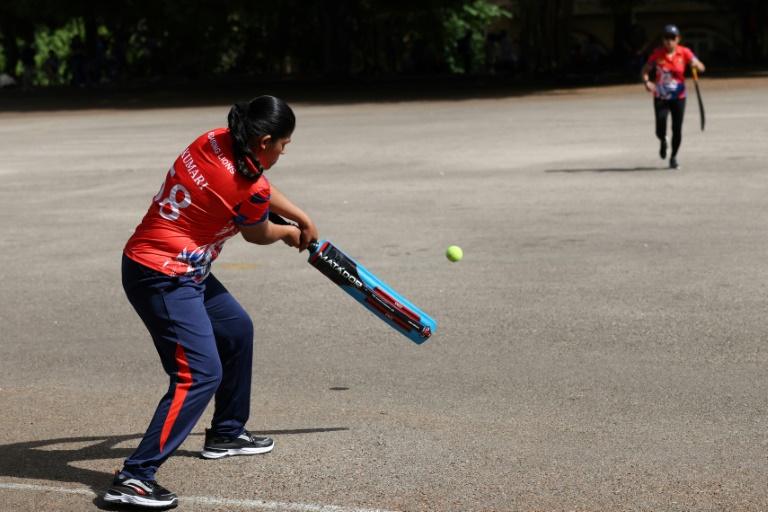Sunday cricket an escape for migrant workers in Lebanon

For many of the cricket-playing migrants, in Lebanon under the controersial ‘kafala’ scheme, Sunday is their only day off
Beirut – In a Beirut car park, migrant workers cheer as their teams face off in a cricket tournament, a moment of respite in crisis-hit Lebanon, where working conditions are often tough.
“Sunday we are so happy… We eat together, we laugh together,” said cricketer Pradeepa Silva, a 42-year-old Sri Lankan, as she and her teammates prepared coconut rice and other traditional food nearby to share.
“Work is very tiring” and workers are stressed and worried, said Silva, who is employed as a housemaid six days a week and pays for her daughter’s university studies back home.
Every Sunday, players mainly from Sri Lanka but also from the Philippines, India and Pakistan gather in Beirut’s Ashrafieh neighbourhood to play cricket — a little-known sport in Lebanon.
Migrant workers are employed under Lebanon’s controversial “kafala” sponsorship system, which rights groups have repeatedly denounced saying that it enables a wide range of abuses.
On May 19, several hundred people gathered for a tournament that also brought together traditional food stalls, a DJ playing Bollywood hits and other music, teams from the British and Sri Lankan embassies and young Syrian refugee players.
Iris Sagario from the Philippines ran onto the field for the Roaring Lions women’s team, wearing an orange and blue shirt with her name printed on the back.
“I love cricket,” said the 43-year-old, who works as a housekeeper. “I’m very excited to play every Sunday” — her only day off.
After winning their match, Sagario’s team broke out into cheers, hugging and high-fiving each other. They went on to take the women’s trophy.
– ‘Lord’s of Lebanon’ –
More than 160,000 migrants from 84 nationalities were in Lebanon last year, according to a report from the International Organisation for Migration.
With daily bombardment in south Lebanon as Hezbollah and the Israeli army clash amid tensions over the Israel-Hamas conflict in Gaza, some foreign embassies have advised their nationals to leave the country.
“At first I was worried” but “my sir (employer) assured me that all is good,” said Sagario, who was also in Lebanon in 2006, when Israel and Hezbollah last went to war.
“I’m choosing to stay because… I don’t know what I’ll do if I go back to the Philippines. I want to give financial (help) to my family,” she said.
Curious passersby sometimes peered over a tumbledown stone wall to watch the matches.
Organiser Fernando Sugath, 52, from Sri Lanka said some players nicknamed the car park they have been using for around two decades “Lord’s of Lebanon”, a reference to the famous Lord’s cricket ground in London, which is known as the “home of cricket”.
Matches in the car park were halted for five years when the players lost access to the site but resumed in 2022, Sugath said.
His team changed its name to the Saint Joseph Cricket Club in honour of the neighbouring church that helped them return to the site.
– ‘Let them have some freedom’ –
Migrant workers at the cricket match “are very lucky that they’ve got some good employers who give them the Sunday off”, said Sugath, who first came to Lebanon in 1996 as a cleaner and is now an administrative assistant.
Rights groups have long criticised Lebanon’s restrictive sponsorship system, saying it facilitates exploitation and leaves migrant workers at the mercy of their employers, amid persistent reports of physical and sexual abuse, unpaid wages and long work hours.
Sugath appealed to all employers to give workers “at least one hour, two hours off on Sunday… Let them have some freedom, let them use the phone, call their families”.
As the men’s competition kicked off, big hitters began smashing the ball into the trees lining the car park as fielders scrambled for a catch.
Majid Satti, 39, from Pakistan, captains the Eleven Brothers team — with five players from Pakistan and six from India — which came runner-up in the men’s tournament.
Their two countries have long had a strained relationship, but “we have no issue… we are all like brothers here,” said Satti, a concierge who has been in Lebanon for 15 years.
Vice-captain Raju Singh, 41, from India, said the players “never think about” politics.
An electrician by trade, Singh wore his team’s traditional cricket whites, with long white trousers and shoes, and was among those in charge of the coin toss to decide which teams would field or bat first.
The Lebanese 500 lira coin he used, valued until 2019 at around 35 US cents,is now worth less than a single cent following Lebanon’s economic collapse, during which some migrant workers were abandoned by their employers and others pushed to leave the country.
Singh said he loved cricket and travelled almost 30 kilometres (20 miles) each week for the Sunday games.
“When we finish (and) we go home, we are waiting for next Sunday,” he said.
